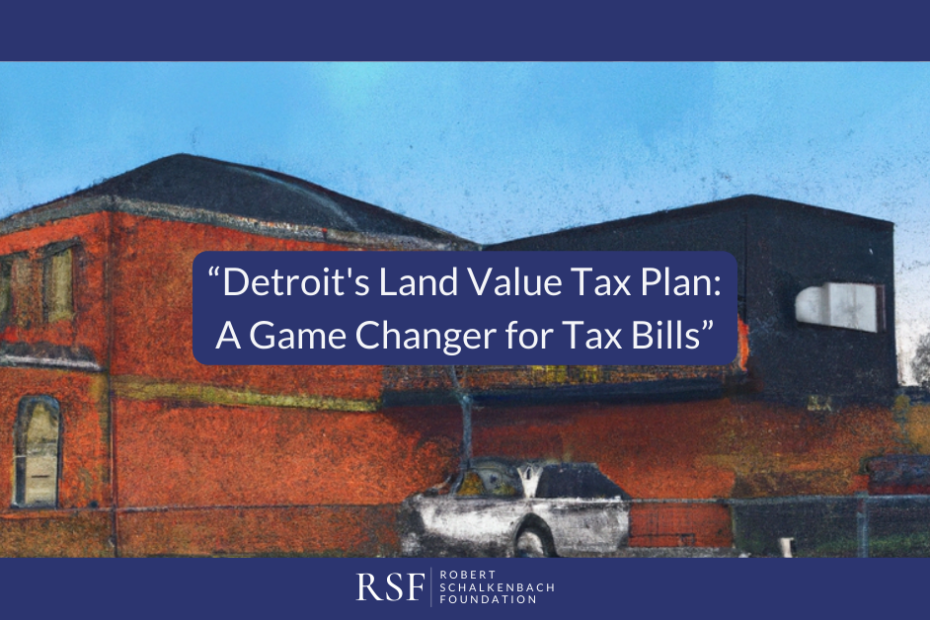Detroit’s current tax system has long been a subject of criticism, with homeowners burdened by some of the highest property taxes in Michigan. Paradoxically, because land values are low, the owners of the City’s many abandoned buildings, scrap yards, and parking lots face low taxes, contributing to blight and a lack of investment in the city. Mayor Duggan’s Land Value Tax (LVT) plan, introduced to address these disparities, promises to transform Detroit’s tax landscape significantly. This blog explores the impacts the LVT plan will have on tax bills, from promoting equity to encouraging investment and development.
Punishing Blight and Promoting Beauty
One of the key criticisms of Detroit’s existing tax system is that, by taxing improvements (i.e. homes and businesses) the same as land values, it keeps the carrying costs of vacant and underutilized land low, inadvertently rewarding blight and discouraging investment in the process. By lowering the tax rate on improvements and raising the rate on land values, the LVT plan seeks to flip the script, raising the cost of land speculation and encouraging property repairs, construction, and investment by curtailing subsequent tax increases. This shift in focus is expected to support the revitalization of Detroit’s neighborhoods by making them more attractive (from a tax perspective) for residents looking to improve their properties and real estate investors alike.
Equitable Tax Relief for Homeowners
One of the most significant aspects of the LVT plan is its commitment to ensuring that homeowners do not face tax increases. In fact, some 97% of Detroit homeowners will enjoy a tax cut under the new plan, with the average tax cut totalling about 17%. This fiscal relief reflects the plan’s focus on protecting and benefiting Detroit’s residents.
Tax Savings for Commercial and Industrial Businesses
The benefits of the LVT plan extend beyond homeowners. Approximately 70% of all commercial and industrial businesses in Detroit will experience tax savings – savings which can be used to invest, grow, and contribute to the city’s economic development. By making Detroit a more attractive place for businesses to operate, the plan aims to foster job creation and economic prosperity.
Shifting the Tax Burden
Under the LVT plan, the burden of taxation will shift from homeowners to those types of property which build very little on a lot of valuable land. Vacant lots, commercial buildings, scrap yards, auto salvage yards, and surface parking lots – all land-intensive property types – will see increases in their tax bills under the plan. This redistribution of tax burdens will put pressure on owners of these property types to improve or redevelop them for more productive use, or sell to someone who will make the kinds of investments necessary to warrant the new, higher tax bills. This process of land improvement and resale will be critical for breathing new life into the Motor City.
Competing with Neighboring Counties
One of the goals of the LVT plan is to make Detroit’s property taxes more competitive with those of neighboring counties. Currently among the highest in Michigan, Detroit’s property taxes make it a less attractive place to invest, compared to nearby jurisdictions. With an LVT in place, however, Detroit’s property taxes would be on par with neighboring Southfield, Ferndale, Warren, and Grosse Pointe, creating a more level playing field to help attract new residents and businesses and stimulate economic growth.
Conclusion
Detroit’s Land Value Tax plan represents a significant shift in the city’s approach to taxation. By easing the tax burden on homeowners, the plan aims to promote equity, encourage investment and development, and ultimately transform Detroit from a city burdened by blight to a place replete with beauty and ripe for reinvestment.

